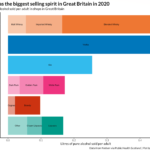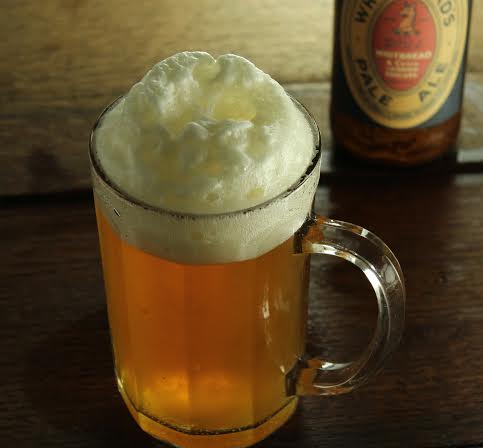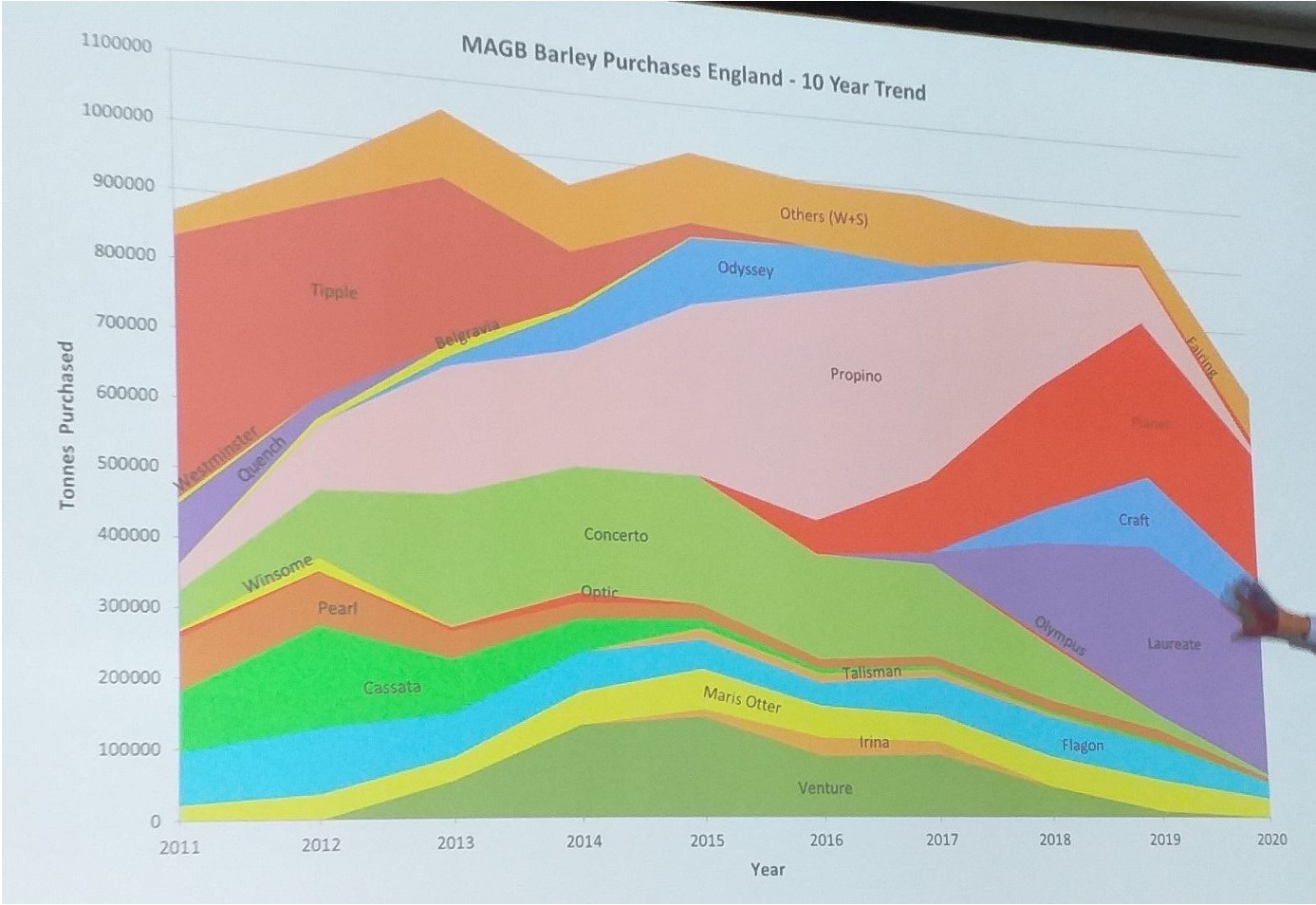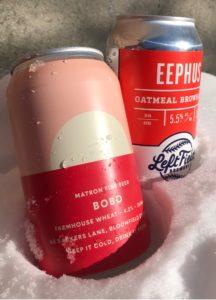 Not the big thaw, the ice jam busting thaw. Just the small thaw that tells you a big thaw is not that far off. The thaw that tells you you probably don’t need to buy more bird feed for, basically, the squirrels. The bastardly squirrels. You can sit out now. In the sun. With your Bobo and you Eephus. Yup, it’s a time when your mind starts to look forward to spring. And outdoor unpaid labour followed by a nice cold beer. That’s where it all started, right? As the old Temperance Society hymn told us, yardwork is the root of all evil. Soon coming. Get ready.
Not the big thaw, the ice jam busting thaw. Just the small thaw that tells you a big thaw is not that far off. The thaw that tells you you probably don’t need to buy more bird feed for, basically, the squirrels. The bastardly squirrels. You can sit out now. In the sun. With your Bobo and you Eephus. Yup, it’s a time when your mind starts to look forward to spring. And outdoor unpaid labour followed by a nice cold beer. That’s where it all started, right? As the old Temperance Society hymn told us, yardwork is the root of all evil. Soon coming. Get ready.
But for now, first up is The Beer Nut who found a bit of an expensive dud this week and it does make one wonder how much silent regret there is out there for this sort of thing:
Clearly this has been designed, and priced, for the special-occasion market. Anyone new to big barrel-aged stout and apprehensive about what it brings may find themselves enjoying how accessible it is. I couldn’t shake the feeling that it’s rather bland given the specs. I don’t want a sickly bourbon bomb but I do want more substance and more character than this displays. Perhaps releasing it fresh would have been the better move.
So not a drain pour but, still, not necessarily a beer you want to share with pals who know what’s what – or the price with thems who might not. Is there a word for that? There has to be a word. And what would our man in the EU think of this: blue beer in France: “Question?” “Yes, is it a shitty beer? “Quoi?” “Votre bier… c’est un biere du merde bleu, monsieur?” Peut etre.
Elsewhere, on a day out in Kent (are there ever days not out for Martin?) we gained another bit of knowledge on the rules of pub snacks as they relate to the odd hairy bits:
The Larkins was a lovely cool pint; that ramekin of scratchings a tad let down by the inclusion of pork crackling, which really ought to be outlawed. Unless scratchings have hairs on them, they have no right to that name.
There was a bit of a bittersweet tale posted by Boak and Bailey this week, a story of something found in a pub which starts:
On Saturday 8 March 1975, a 16-year-old boy wrote an autobiographical note on a piece of thin chipboard and concealed it in the skittle alley at The Lord Nelson pub in Barton Hill, Bristol.
Hey look! It’s Ren Navarro appearing on CTV discussing dessert beers nationally. A great public education public service.
Jeff wrote about what he called “malt consciousness” this week and I think he is partially, almost entirely quite right:
I had to spent eight days in Bavaria before something magical happened in my appreciation of beer. Because the main difference among the beers I drank (and drank and drank) came from the malt, I was able to tune into that wavelength. For the first time, I developed “malt consciousness.” I understood the role malt played—something many American brewers and most American drinkers still lack. Brewers are a lot more sophisticated now, and they understand that you’re not going to make a very interesting helles from generic two-row pale. Yet I’m not sure we’ve quite arrived at full malt consciousness.
If you go back to the brewing recipe books of twenty years ago, you will see much more interest in a range of malts that you do today. One of my first posted beer reviews eighteen years ago included the faded but one time most important US micro, Pete’s Wicked Ale. Before the new millennium, ales were malt and lagers hop focused. They really weren’t so binary but that was the story, as we see in this 1991 article about the Buffalo brewing scene or this one from 1987. Full bodied dark ales. Malt was the main event before craft appropriated and reframed micro in the early 2000s preparing us for the everything is IPA world we now want to leave behind. The present malt revival is great and adds another dimension to local brewing for sure. But it’s not new. We are remembering.
The big theme went off in another direction this week, a few more indications of the continuing death… or perhaps these are the zombie years… of craft like this:
Observation: There’s a LOT of confusion right now among wholesalers, trying to get a bead on the current direction of the craft beer industry. A general feeling of “something has fundamentally changed, but we aren’t quite sure what” going around. It’s creating some paralysis.
And Chris Loring of Massachusetts’ Notch Brewing shared this thought:
US brewers can take anything of value and tradition and make it a gimmick before beer drinkers experience the real thing. When was it decided we’d be clowns instead of professionals? I’m done, this is embarrassing.
Then… we learn again that a portion of CAMRA is populated by pigs. Then there was the end-timsey news about contract brewing no alcohol beer being a thing with the unskilled… and, of course, the Flagship February dead cat bounce. It is all flounder or founder? Whatever, I presume it all is the sort of cleansing we would expect after a pandemic… or a recession… or a competing innovation that draws attention elsewhere. Sorta facing all three makes for a guaranteed shift. M. Lawrenson had some interesting thoughts about the perhaps associated irritability of drinking establishments with social media observations:
Unfortunately, some places don’t see it this way. Apparently, they live and die by their Google rating. I gave 4/5 to somewhere last week. On Sunday afternoon, they sent me a message saying “Hi, is there we can do to get you to change your rating to a 5?” I struggled to think of a reply, as I’ve been to this place twice a week for the last 6 months and it’s been pretty much the same every time. They could make it perfect for ME, I suppose. But what’s perfect for me ain’t gonna be perfect for everyone. Perhaps they recognised my name and imagined I’m some kind of “influencer” in the pub world.
Also, relatedly, I think this is one opinion that is about 180 degrees wrong about the nature of change we are seeing:
As someone who’s covered the seething angst and vexing contradictions of America’s craft beer industry and culture for over a decade, I find this a remarkable development. Where have all the hate tourists gone? Or, to put it another way: How did a craft beer industry and community so opposed to selling out become so inert in the face of their beloved breweries getting sold off?
Umm… maybe the development of small local breweries with no chance of ever being in a buyout maybe? The hate stop hating big craft and just moved on to a more interesting experience. That’s only the main story in history of good beer circa 2015-2022. Sweet status-based self-citation, however.
Note: “not Britain’s oldest boozer.”
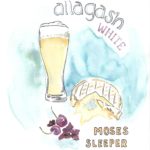 I really dislike most beer culture cartoons as they are… umm… not all that likeable* but I do like the more deftly drawn ones by Emily Thee Cannibal, possibly a proctologist, like this one about a pairing of Allagash White with a soft cheese… except I can’t stop feeling that the cheese looks like a dying PacMan. It’s a slower more dignified death for sure… but still.
I really dislike most beer culture cartoons as they are… umm… not all that likeable* but I do like the more deftly drawn ones by Emily Thee Cannibal, possibly a proctologist, like this one about a pairing of Allagash White with a soft cheese… except I can’t stop feeling that the cheese looks like a dying PacMan. It’s a slower more dignified death for sure… but still.
Finally and weirdly, odd news from (i) the folks fighting against the bad actors and powers of BrewDog and (ii) the folk rooting for Mikkeller despite the bad actors and powers. Both groups seem to have engaged the same consultants to deal with their respective complaints. I hadn’t appreciated that in January there was an announcement that@PunksWPurpose had acquired a “platform to affected Brewdog workers to assist [them]… in their core mission of tackling Brewdog’s cultural issues” but saw today that the same consultancy was hired by Mikkeller to provide provide a “Workplace Reconciliation Program.” This is a little confusing for me, being a lawyer who dabbles in areas of owner v. contractor, employer v employee issues, as you are either on one side or the other in my profession. Do you really want to share your experience to be used against an allegedly overbearing employer with someone hired by another allegedly overbearing employer to smooth the waters?**
Perhaps it is just as one correspondent wrote privately, “folks might be more interested in catharsis than anything else” regardless of the outcome in terms of justice. The display may be enough. Me, I’d say don’t rely on a consultant, get your own legal advice (especially when the consultant does not seem to understand independent legal advice means) or go to a tribunal (usually free). Whatever you do, be especially careful to not create a record of any complaint that ends up owned by the party against which you are making a complaint. You will see it next in your cross-examination when you do end up making that legal complaint: “… but didn’t you say in Feb 2022 the following…“***.
There. Done. For more check out the updates from Boak and Bailey mostly every Saturday and from Stan every Monday, plus more with the weekly Beer Ladies Podcast, and at the weekly OCBG Podcast on Tuesday and sometimes on a Friday posts at The Fizz as well. There is a monthly sort of round up at The Glass. (Or is that dead now?) There is more from the DaftAboutCraft podcast, too. And the Beervana podcast. And sign up for Katie’s irregular newsletter, The Gulp, too (… back this week!) And check out the Atlantic Canada Beer Blog‘s weekly roundup. Plus follow the venerable Full Pint podcast. And Fermentation Radio with Emma Inch. The AfroBeerChick podcast as well! And also look at Brewsround and Cabin Fever. And Ben has his own podcast, Beer and Badword (which I hope is revived soon…) And remember BeerEdge, too, and The Moon Under Water.
*rahrah, craft is great, comes in brown and other colours…kittens!
**Then the odd news turned into an odd thread when the consultancy lead jumped at the tail end of a chat I was having with DSL, wanting a discussion with me about Mikkeller, then suggested I was aggressive (no), directed me to the FAQs (no thanks) and sought to get me off Twitter and speak on the phone (really, no thanks). Crisis management deflection stuff. Frankly, I think I find most offensive thing is the use of “reconciliation” which is appropriate when talking about bringing a fundamentally divided nation together, not helping a frigging contract brewer cope with its self-inflicted crisis.
***But, then again, I pretty much did the same thing spilling my beans such as they are, a bearing of witness to a hired investigator about my tangential involvement in a similar issue… which was where the discussion with DSL started – and should have ended. Go figure.






